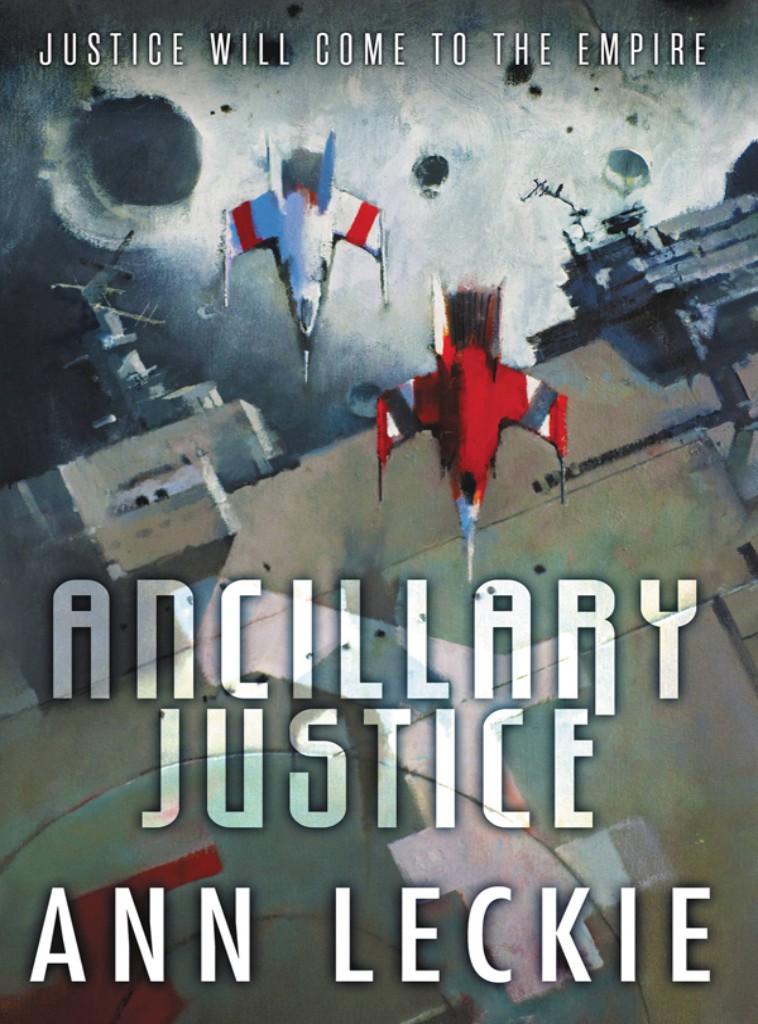JohnnyCache reviewed Ancillary Justice by Ann Leckie (Imperial Radch, #1)
Review of 'Ancillary Justice' on 'Goodreads'
1 star
This really seems to be a case of a bandwagon gone insane. I was looking forward to this book after seeing very high recommendations from a lot of high-profile people: Veronica Belmont, John Scalzi (I think?), Felicia Day, NPR books, I know I am forgetting more... and nearly every review here is five stars. How could I not love this one? Well, recently, I have discovered that I am really not fitting in with the mainstream. I have had terrible luck lately with ridiculously popular books and Ancillary Justice is no exception.
I was excited to see Ann's treatment of gender due to the now famous use of "she" as the default pronoun in the book. Unfortunately, it doesn't work at all. What could have been a very interesting take on gender became a gimmick that just didn't fit. "She" in this case comes across as a mistranslation. It is a word that, in English, is very closely associated with the feminine. There are a few exceptions, like boats, guns, or cars, where people will refer to the genderless object as a she. If translating from a language or culture that doesn't recognize a difference between masculine and feminine, one would definitely not choose "she". Sure, it doesn't make for such clever marketing. However, before I get drowned out by cries of "misogynist!", one would not use "he", either. We already have a word for the neutral gender: "it". If that seems too impersonal, one could refer to "the person" throughout the book. It doesn't flow very well and definitely doesn't hold any gimmick value, so it is a lame choice, but it would still make more sense.
Now, aside from the gender issue, the book was a muddled mess. Ann apparently had terrible difficulty with descriptions, using "angry" or "anger" just about a hundred times by my count. She used the word "gesture" a hundred times, as well. There were gestures for everything: polite gestures, gestures of "ambiguity" - whatever they would be, apologetic gestures, negating gestures, more gestures of ambiguity, "abortive" gestures, gestures showing a lack of concern or helplessness. It really came across as what it was: an author's first time at bat.
The story seems to have been thrown together by the writer making angry gestures while holding a pen. Characters would be walking along, talking - and then falling, suddenly. Ok, so you needed to get the story going, but just a sudden fall down hundreds of meters? Maybe my copy was missing a few pages? The story focused on local, regional and galactic/universal politics. If that is your bag, give it a shot. In my mind, though, it read like Tom Cruise's movie Mission Impossible: convoluted story lines going everywhere but nowhere at the same time, characters that were undeveloped to the point where I was indifferent to their fates and actions, and a stupid plan that was the foundation of the whole plot.
Stupid plan? That isn't nice! Honestly, the whole idea of the book is that a guy has a terrible plan. Somebody wants to steal a gun and kill thousands of bad guys, yet she (see what I did there? Gimmick!) knows she may only successfully kill a small handful? To make it worse, there are mind-reading ships that can tell if you are stressed or sweating, which just may be significant if your goal is the assassination of one thousand clones of the galactic empire's supreme leader! Conveniently, though, these clones all seem to hang around common ships and hang onto the outside of escaping ships, trying to shoot their way in. Lazy. Wow. This is the last Ann Leckie book I am going to waste my time on. Sorry, Ann, I don't mean to hurt your feelings, but I am sure that my review certainly won't sink your next book or movie deal.
I have written low star reviews of popular books before and have received angry messages from fanboys intending to intimidate me into giving more stars (really!), so I feel it necessary to provide this explanation of what a book review site is: it is a collection of different opinions. If you don't like somebody's opinion of your favorite book, sending messages to that person to give a better review completely reduces the value of the review site as a whole. If every offended person here got everybody else to give a book give stars, every book would have five stars. How does that help you find your next book to read? Instead, there are a billion five star reviews for Ancillary Justice and a few low ones. If you agree with the tastes of the low star reviewers, maybe the book isn't for you. If you want to play the numbers game, read the book, you will probably love it.

